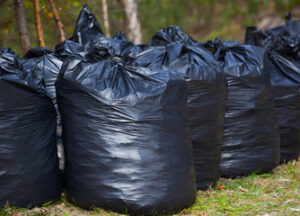Those who limit the amount of garbage they produce can save money. Putting only what you really need into your garbage cans, helps make the job of the guy on the truck go more quickly and efficiently.

Some large cities charge a fee that depends on the size of household refuse bins, creating strong incentives to generate less trash. This policy brief explores options for a new financing method for residential trash services. For more details, contact Temecula Trash Service.
Amid glossy portrayals of Wall Street tycoons and fashion moguls, and sleek avenues lined with luxury cars, a more persistent adversary lurks: trash. The city’s odorous arm-race with garbage—and its irresistible temptation for rodents—is the subject of constant yet often unheralded battles between city officials and residents, who call for better methods for keeping streets clean.
When selecting a waste management company, look for one with experience in the industry and a history of exemplary customer service. Companies offer customized trash cleaning schedules to fit the unique needs of each business, and can help prevent odor problems by properly disposing of food waste. They also adhere to local environmental regulations and safety guidelines for the transportation of waste. This helps ensure that your property is in compliance with all regulations at all times.
Safety
Waste management services are crucial for the health and cleanliness of our communities. But it is important to keep safety in mind, especially when dealing with hazardous materials or operating large vehicles. This is why many local governments and trash collection agencies have implemented various measures to protect their employees and citizens.
The first step to staying safe around garbage trucks is knowing the schedule and being aware of when service vehicles are in your area. Most municipalities and waste management companies have a clear online or paper scheduling system that can help you stay informed. In addition, it is wise to keep a distance from the truck, especially when children are nearby. It takes a service vehicle twice as long to stop as a passenger car, so it’s important not to cut in front of one.
Another important safety tip is to understand the regulations surrounding bulk waste and disposal. This can include a restriction on the size of items that can be disposed and guidelines for what types of waste can be included. For example, a dumpster might be necessary for disposing of large tree limbs, furniture, or appliances. If you are unsure of what to do with these larger items, contact your local waste management agency to see about arranging for special pickup.
To reduce odor and pests, it’s essential to keep your waste area clean and free of obstructions. This can be done by ensuring that vehicles are not parked in front of the container and keeping access doors open for easy collection. It is also a good idea to tightly bag all trash before placing it in the container.
For those working with hazardous waste, the risk of injury is much greater. This type of work typically requires specialized training and certification as well as a confined space entry permit. Hazardous waste workers may be exposed to sharps, which can lead to puncture wounds, and chemicals that could cause skin burns. It is therefore important to wear proper personal protective equipment (PPE) such as gloves, eye protection, and hard hats to prevent injuries.
Sustainability
The earth’s population has grown quickly in recent years, leading to an increase in the need for products and waste disposal. However, the use of resources to produce and consume more goods creates environmental pollution, which exacerbates climate change. The use of single-use plastics, for example, requires a lot of energy to produce and then quickly becomes waste. The world’s natural resources are limited and the rate at which they are being used is unsustainable.
Sustainable business practices focus on minimizing an organization’s environmental footprint, including waste management and recycling efforts. These initiatives have the potential to positively impact a company’s bottom line by reducing costs related to energy consumption, waste generation, and water utilization.
Waste and recycling efforts can help reduce an organization’s carbon footprint by avoiding landfills. Landfills release methane and other greenhouse gases into the air, which contribute to global warming. Additionally, they contaminate soil and water supplies, which can harm human and animal health.
Sustainability efforts to reduce a company’s ecological impact can include the following:
Conducting comprehensive waste audits can help organizations identify opportunities for cost savings and streamline recycling programs. Many managed waste service providers offer services that can reduce overall waste-related costs, making sustainability more feasible for businesses.
Another method of sustainable waste management is using energy recovery technologies to turn waste into useful heat and electricity. One such technology is incineration, which burns waste at high temperatures to generate heat and power. This process is not without its drawbacks, however, as it releases large amounts of toxins and pollutants into the air.
Another alternative is anaerobic digestion, a process that treats organic waste and sludge by fermenting it without oxygen. This process produces methane, which can be used as a renewable fuel and is also a source of energy. However, this technology is still in its early stages and is not yet widely available. Currently, most of New York City’s waste is sent to landfills and incinerators outside the city, which are polluting nearby communities and aquifers. Open dumping is also common and poses significant environmental hazards.